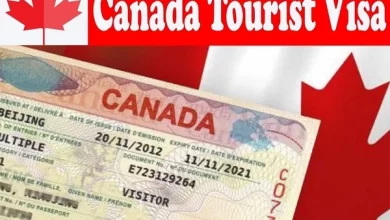Understanding the Different Types of Canadian Visas: Which One is Right for You?
Canada is known for its welcoming attitude towards immigrants and offers a range of visa options for individuals looking to visit, study, work, or settle in the country. However, the numerous visa categories can make it overwhelming to determine which one suits your specific needs. This article aims to provide an overview of the different types of Canadian visas, guiding you towards the right visa category based on your purpose of travel and duration of stay.
- Temporary Resident Visas:
a) Visitor Visa (Temporary Resident Visa): This visa is designed for individuals who wish to visit Canada for tourism, family visits, or business purposes. It is typically issued for a temporary period, allowing visitors to stay in Canada for up to six months. Visitor visas can be single-entry or multiple-entry, depending on the duration and frequency of travel.
b) Study Permit: A study permit is required for individuals who plan to pursue an educational program in Canada that lasts longer than six months. It is essential to have an acceptance letter from a designated learning institution in Canada to be eligible for a study permit.
c) Work Permit: A work permit is required for individuals who want to work in Canada temporarily. It is typically tied to a specific job offer from a Canadian employer and may have restrictions on the duration and type of employment.
- Permanent Resident Visas:
a) Express Entry: The Express Entry system is designed for skilled workers who wish to immigrate to Canada permanently. It is a point-based system that assesses candidates based on factors such as age, education, work experience, language proficiency, and adaptability. Successful candidates are invited to apply for permanent residency through one of the following programs:
- Federal Skilled Worker Program (FSWP)
- Canadian Experience Class (CEC)
- Federal Skilled Trades Program (FSTP)
b) Provincial Nominee Program (PNP): Canadian provinces and territories have their own immigration programs called Provincial Nominee Programs. These programs allow provinces to nominate individuals who have the skills and qualifications required to contribute to the local economy. Each province has its specific criteria and requirements for nomination.
c) Family Sponsorship: Canadian citizens and permanent residents can sponsor their close family members, such as spouses, partners, parents, grandparents, and dependent children, for permanent residency in Canada. The Family Sponsorship program allows families to reunite and settle together in Canada.
d) Refugee and Humanitarian Resettlement: Canada has programs in place to provide refuge to individuals who are displaced, fleeing persecution, or facing humanitarian crises. The Refugee and Humanitarian Resettlement program helps refugees and individuals in need of protection to seek asylum and start a new life in Canada.
e) Start-up Visa: The Start-up Visa program aims to attract innovative entrepreneurs with the potential to create jobs and contribute to Canada’s economy. Eligible applicants must have a viable business idea supported by a designated organization and meet specific entrepreneurial and financial criteria.
Determining the Right Visa for You:
Choosing the right visa depends on your purpose of travel, intended duration of stay, and eligibility criteria. Consider the following factors when determining the appropriate visa category for you:
- Purpose of Travel: Determine whether you plan to visit, study, work, or immigrate to Canada permanently. Each visa category serves a different purpose and has specific requirements.
- Eligibility Criteria: Review the eligibility criteria for each visa category. Consider factors such as age, education, work experience, language proficiency, and family ties, as they may influence your eligibility for certain visa programs.
- Duration of Stay: Determine the duration of your intended stay in Canada. Temporary visas are suitable for short-term visits, while permanent residency programs cater to those seeking long-term settlement.
- Research and Consultation: Conduct thorough research on the different visa categories and consult with immigration professionals or lawyers to understand the requirements, documentation, and processes involved.
Understanding the different types of Canadian visas is crucial when planning your visit, study, work, or immigration to Canada. Each visa category has its specific purpose, eligibility criteria, and benefits. By assessing your purpose of travel, intended duration of stay, and eligibility, you can make an informed decision and choose the visa category that is right for you. It is advisable to seek professional guidance to navigate the complex application process and ensure a smooth and successful visa application.

